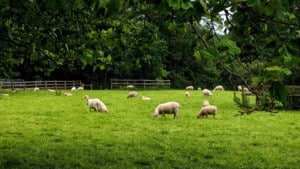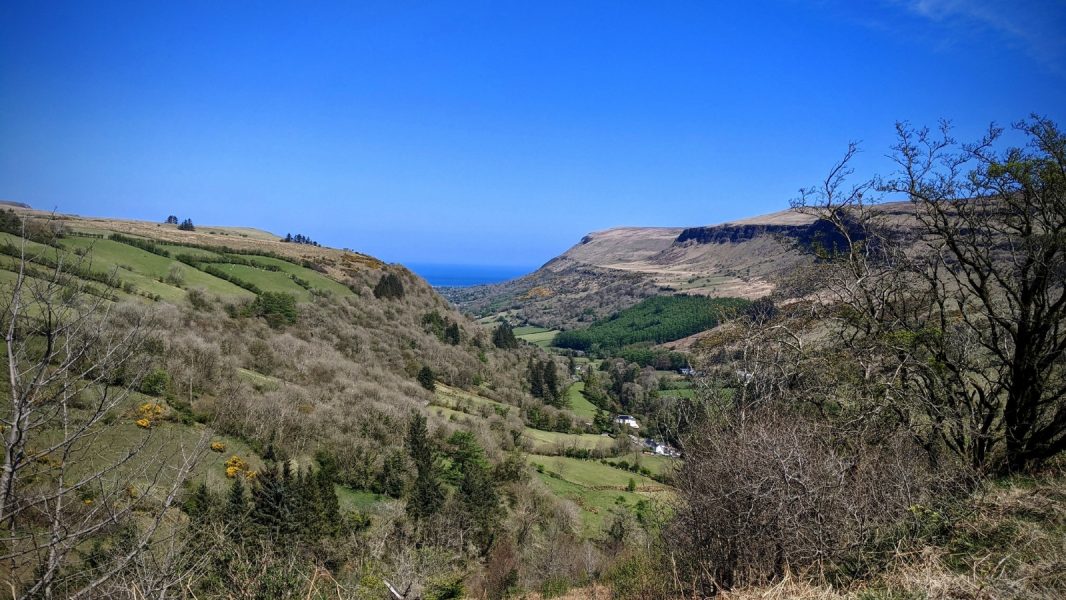
Can you make a ‘Change for Nature’?
Being a farmer or a landowner, you’re already doing a huge amount for Nature on a day-to-day basis. But could you do more?

There are few things more important to us than the environment in which we live, work and play. To protect our future, DAERA has published Northern Ireland’s first draft Environment Strategy.
The strategy sets out six Strategic Environmental Outcomes (SEOs) which encompass all of the main environmental challenges we will face in the coming decades. We want you to have your say on those outcomes.
The draft Environment Strategy sets out a vision for the future of Northern Ireland’s environment and the Executive’s role in dealing with the challenges we face.
Our environment affects every aspect of our existence. It is central to all life, what we do, what we eat, how we work, where we live and play, it is unquestionably our most precious asset. This Strategy sets out the Executive’s plans for protecting our local environment by making sustainable living central to every aspect of our lives in the coming decades.
The Strategy is a guide to how we can preserve, protect and improve our environment for our children and our grandchildren. The Strategy is an open-ended, living document that will be supported by a series of action plans and targets and it confirms Northern Ireland’s environmental priorities for the coming decades.
It is envisaged that this Strategy will be adopted as Northern Ireland’s first ‘Environmental Improvement Plan’. This will provide a statutory requirement to monitor environmental progress against the Strategy on an annual basis.
The Strategy aims to focus on ambitious outcomes for the big environmental issues facing us that will make a difference to the lives and well-being of current and future generations.
If you care about your local environment, you should care about the measures the NI Executive is putting in place to protect it.
The draft Environment Strategy proposes six Strategic Environmental Outcomes (SEOs).
Each of these includes the current position; the actions departments intend to take; proposed targets; and the expected vision or outcome.
This Strategic Environmental Outcome covers key elements of our environment including: air quality; water quality; land quality; and local environment quality. For many people, these environmental issues represent their day-to-day experience of ‘the environment’ – from the air they breathe, to the quality of their drinking water and the condition of their local neighbourhood.
There is no debating the fact that our environment is our single greatest asset. It is key to our well-being, both in an economic sense and in terms of our general physical, mental and social health – as individuals and as a society.
Engaging with people of all ages, communities, business, local and central government and the third sector will be crucial to the delivery and success of the Environment Strategy. This includes both physically engaging people with the natural and historic environment – through the provision of quality natural spaces and opportunities for outdoor recreation & learning – and engaging people and organisations with the processes and interventions that will improve our environment in the coming years and decades.
We are an integral part of nature, and reliant on nature to sustain life. We can positively impact nature as we engage with it, protecting, maintaining and enhancing a clean and healthy environment as we live, work and play. However we can also cause harm to the environment, and this negative engagement is increasingly causing impacts to health, well-being and future sustainability.
Sustainable production & consumption involves the production and use of products and services in a manner that is environmentally benign, socially beneficial and economically viable over their whole life cycle. Key to this is ‘resource efficiency’, commonly defined as using the Earth’s limited resources in a sustainable manner while minimising impacts on the environment. This is something that applies across all sectors – including industry, agriculture and energy.
The Circular Economy is an economic system which reduces overall demand for resources, retains the value of resources and seeks to regenerate our natural ecosystems. By designing things differently, we can reduce overall demand for raw materials, reduce waste generation and create things that retain value throughout their entire life cycle. By keeping technical and natural materials in circulation for longer at their highest value we retain their embodied carbon and can increase nature’s ability to sequester carbon.
A circular economy is fuelled by renewable energy and while the decarbonisation of the energy sector is a necessary part of achieving net zero, the circular economy is an equally essential element because by its application we create more sustainable production and consumption patterns which are needed to tackle resource scarcity, inequality and waste generation.
The circulation of natural materials can create new bio-economy enterprises and will help regenerate natural systems. In a Circular Economy system we create places where people have greater access to products, businesses thrive by becoming more resource efficient and we improve the health of natural ecosystems.
There is broad acceptance of the desirability of shifting towards a low-carbon economy and ensuring society can respond and adapt to the impacts of climate change. Northern Ireland is the only part of the UK which does not have bespoke local climate change legislation. The Executive is committed to delivering a Climate Change Act for Northern Ireland and growing a low carbon skills base to enable Northern Ireland to play its part in limiting the rise in global temperatures to 1.5oC.
DAERA is seeking views on the Draft Environment Strategy for Northern Ireland. The purpose of the consultation is to give you, the people who will be affected by the decisions taken in the future, an opportunity to express your views on the content of the Draft Environment Strategy.
Your views matter and we would encourage everyone to participate. Every response will be carefully considered and fed into the policymaking process.

Being a farmer or a landowner, you’re already doing a huge amount for Nature on a day-to-day basis. But could you do more?

Change for nature and be part of the MyNI community, take (even a small personal) action against climate change in 2021.

Are you ready to make a pledge to Change for Nature?